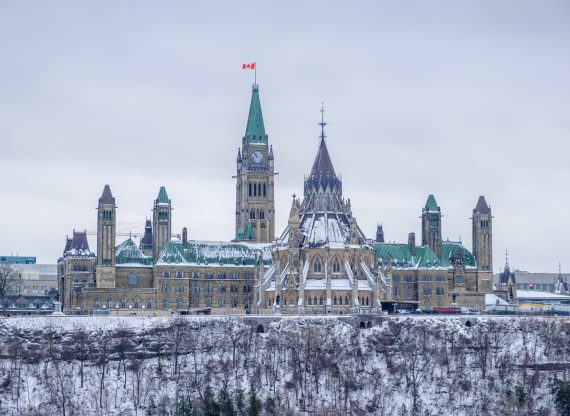Federal government needs to go on a diet

Oscar Wilde once observed that bureaucracy expands to meet the needs of the expanding bureaucracy.
This would seem to be the maxim driving Prime Minister Justin Trudeau’s approach to the size of the federal government and its out-of-control growth almost from the day he took office.
By the most recent count, the Canadian government had 357,247 public servants. If all these federal employees were gathered into a single municipality, it would be the 16th most populous in the country, ahead of the city of Markham on the outskirts of Toronto.
Another way to understand this is to consider that there are today 100,000 more federal public employees than there were eight years ago, representing an almost 40% increase in the government’s labour force over Trudeau’s mandate.
Whether you look at this in nominal terms, as a percentage, or in terms of the number of civil servants per 1,000 inhabitants, no other prime minister in the last forty years has inflated the public service as much.
Given such a mighty increase in its staff, one might reasonably assume that the federal government is now doing a lot more to help citizens like you and I. Or maybe it is now delivering existing federal services at lightning speed!
You would be hard-pressed to find many Canadians willing to say this has been the case for them.
Whether because of endless lineups at the passport office or at customs, or interminable waiting on hold with the Canada Revenue Agency, it must be admitted that Trudeau’s massive hiring spree has not changed things much in the speed and form of federal service delivery.
If anything has changed at all, it’s the amount we spend collectively to cover the salaries and benefits of federal government employees.
According to the Parliamentary Budget Officer, total federal employee compensation spending has risen by more than $21 billion since the Trudeau government took office, reaching $60.7 billion as per the most recent available data.
To put this $21 billion in context, it’s roughly equivalent to the amount the federal government expects to pay out in employment insurance benefits this year.
That’s a heck of a lot of money we’re sending to Ottawa to pay for extra civil servants instead of bolstering health and education systems in the provinces or giving taxpayers a bit of a break.
And it’s worth mentioning that the effects of an ever-expanding federal public service are not only felt when it comes time to pay taxes.
Given the current business climate, one in which our entrepreneurs are struggling to find qualified workers to fill their companies’ available positions, it’s important to recognize that excessive growth in the size of the federal government is detrimental.
At bottom, the larger the pool of workers gobbled up by the federal government, the smaller the number available for private-sector employers.
The final outcome of this artificial labour shortage is that our businesses’ plans for growth are hindered and their ability to take on new customers is impaired. This has a significant impact on their revenues, and ultimately, on government revenues as well.
According to data from the Canadian Federation of Independent Business, a shortage of skilled workers was responsible for more than $38 billion worth of business opportunities being turned down by Canada’s small businesses last year.
One can reasonably assume that, given our tax rates, this extra business would have provided Ottawa with a few billion dollars in additional personal income, sales and corporate income tax revenue.
It’s also a pretty safe bet that having another 100,000 potential employees in the private labour pool would have helped to meet the demand. And they would have had a far more positive impact there than anything we are seeing from federal services.
The Trudeau government would do well to end the hiring spree and conduct a thorough review of its workforce to make sure Canadian taxpayers get the best value for money. Right now, it certainly seems like it isn’t the case.
Gabriel Giguère est analyste en politiques publiques à l’IEDM. Il signe ce texte à titre personnel.

